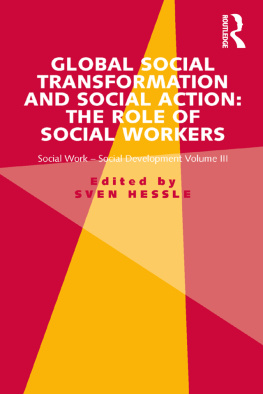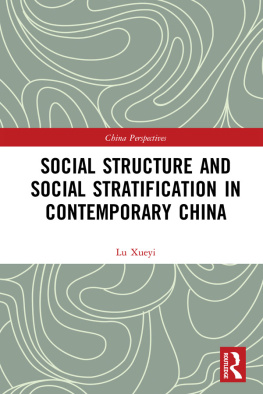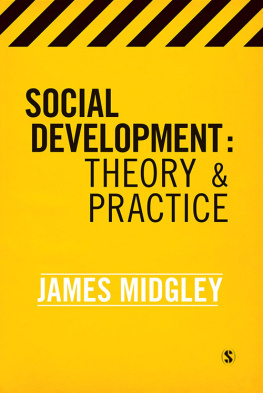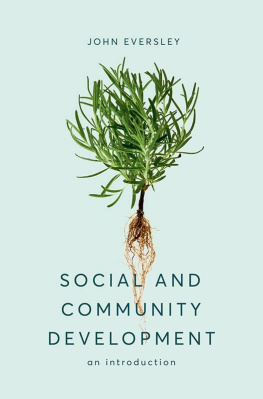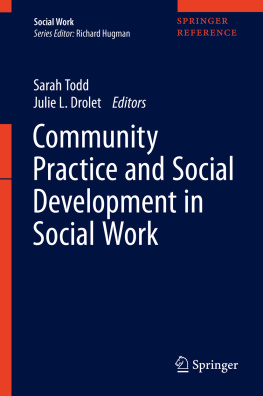
Social Development in Social Work
Social work has always been concerned with the development of society as the basis for achieving the well-being of individuals, families and communities. Interest in this important aspect of social work is now seeing a resurgence, not only in the developing countries of the global South but also in the global North. This innovative book provides an introduction to the area.
Using concrete examples taken from practice around the world, Social Development in Social Work addresses questions such as:
How should social development be understood as a core aspect of social work practice?
What is the significance of economics, politics and the environment for a developmental approach in social work?
How may a comparative understanding of social welfare practices, programmes and policies enhance social development in social work?
In what ways does social development contribute to international and domestic social work?
What skills, knowledge and theory do social workers need to practise in this field?
Arguing that social development should be at the centre of contemporary social work practice and theory, this book is ideal for social work students and academics with an interest in social development, international social work, social justice, social policy and community social work.
Richard Hugman is a professor of social work at the University of New South Wales, Australia. He has held positions in practice, teaching and research in Australia and the UK, and is widely published in social work and related fields. His recent practice is in social development in Asia.
Social Development in Social Work
Practices and principles
Richard Hugman
First published 2016
by Routledge
2 Park Square, Milton Park, Abingdon, Oxon OX14 4RN
and by Routledge
711 Third Avenue, New York, NY 10017
Routledge is an imprint of the Taylor & Francis Group, an informa business
2016 R. Hugman
The right of Richard Hugman to be identified as author of this work has been asserted by him in accordance with sections 77 and 78 of the Copyright, Designs and Patents Act 1988.
All rights reserved. No part of this book may be reprinted or reproduced or utilised in any form or by any electronic, mechanical, or other means, now known or hereafter invented, including photocopying and recording, or in any information storage or retrieval system, without permission in writing from the publishers.
Trademark notice: Product or corporate names may be trademarks or registered trademarks, and are used only for identification and explanation without intent to infringe.
British Library Cataloguing in Publication Data
A catalogue record for this book is available from the British Library
Library of Congress Cataloging-in-Publication Data
Hugman, Richard, 1954, author.
Social development in social work : practices and principles / written by Richard Hugman.
p. ; cm.
Includes bibliographical references and index.
1.Social service.2.Social planning.I.Title.
[DNLM: 1.Social Work.2.Global Health.3.Social Change.4.Social Welfare.HV 40]
HV40.H778 2016
361.3dc23
2015004908
ISBN: 978-1-138-01763-4 (hbk)
ISBN: 978-1-138-01764-1 (pbk)
ISBN: 978-1-315-78033-7 (ebk)
Typeset in Bembo
by Apex CoVantage, LLC
Contents
Although the concept of social development in many ways has grown out of social work, it often remains marginalised from the dominant perspectives in social work, especially in the countries of the global North. This has become apparent to me over a long involvement in international social work as a practitioner and academic. It has been highlighted both in the many debates that occur when people from different parts of the world meet and share their experience and their ideas and in the extent and types of research materials and educational resources that can be drawn on in practice and teaching. Thus the research into social development as practice and theory in social work that underpins this book began from both practical and theoretical concerns. For this reason, the analysis that is presented here likewise seeks to integrate practical and theoretical questions and to be relevant to the concerns of both practitioners and scholars in social work and beyond.
My own background in social work is that of a generalist practitioner. This has inevitably influenced the way in which the different dimensions of social development in social work are addressed. Nevertheless, as argued in the following chapters, this analysis concludes that the social development approach in many ways is most effectively examined from a generalist perspective. So although it has been drawn from questions that arose in international social work, this discussion is intended to inform social work in different national and local contexts as well as international practice.
Any analysis of this kind runs the risk of emphasising some aspects of the subject and ignoring others. However, throughout the discussion the central question has been what do these debates about social development tell us about its practice within a social work frame of reference? In this way, the inevitable choices about what should be addressed in depth and what can be treated briefly was guided by a concern to connect the analysis with its practical implications at all times. This, I think, can be seen in the focus of , on skills and knowledge, on particular forms of practice there are very few published studies of policy development as social work practice, for example.
It is also necessary for me to address a particular aspect of the way in which this book is structured. My own identity is that I am from the global North. So, even though my practice and research include working in global Southern contexts, I must be aware that I do so as a guest in international social work relationships. Given the importance of social development for social work in the global South, this is an important issue. For the discussion presented here it means that while I am able to address social development in international social work practice and for the so-called developed countries, reflected in the structure particularly of , I am not able to speak directly for global Southern perspectives and the extent to which I am able to address them is through the insights and inspiration of colleagues. In other respects, this is a task in which I must defer to colleagues from the global South.
A note on terminology the vexed question of how to distinguish between the various parts of the world in relation to differences of social and economic development has no single agreed answer. Healy (2008) chooses the UNICEF terminology of developing as against industrialised, while Payne (2014) prefers resource-poor as against resource-rich. In both cases they are seeking to avoid what they see as a confusion of the terms global South and global North, illustrated by the location of Australia and New Zealand in the global North. However, I regard all these terms as fraught with the same difficulty. Many of the developing countries are rapidly industrialising and have parts that are now highly industrialised, in which major development issues centre on the unequal distribution of the benefits of development. Similarly, many of the so-called resource-poor countries are actually rich in natural and human resources, but face issues not only of internal inequality but also of international inequality and economic and political neocolonialism. Therefore, as these are questions that lie at the centre of the analysis of this book, I have chosen to stay with the South/North distinction, which is widely used and understood in the development field and which is well defined by the Brandt Commission (1980), from which some critical approaches in development practice in the late twentieth century derived momentum.





